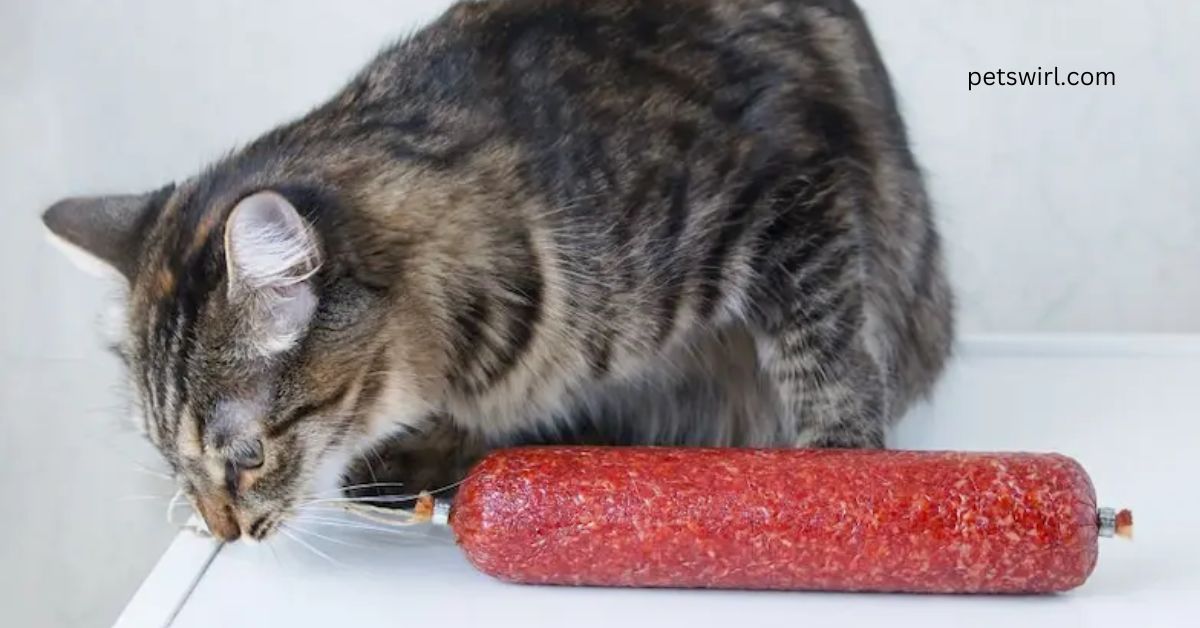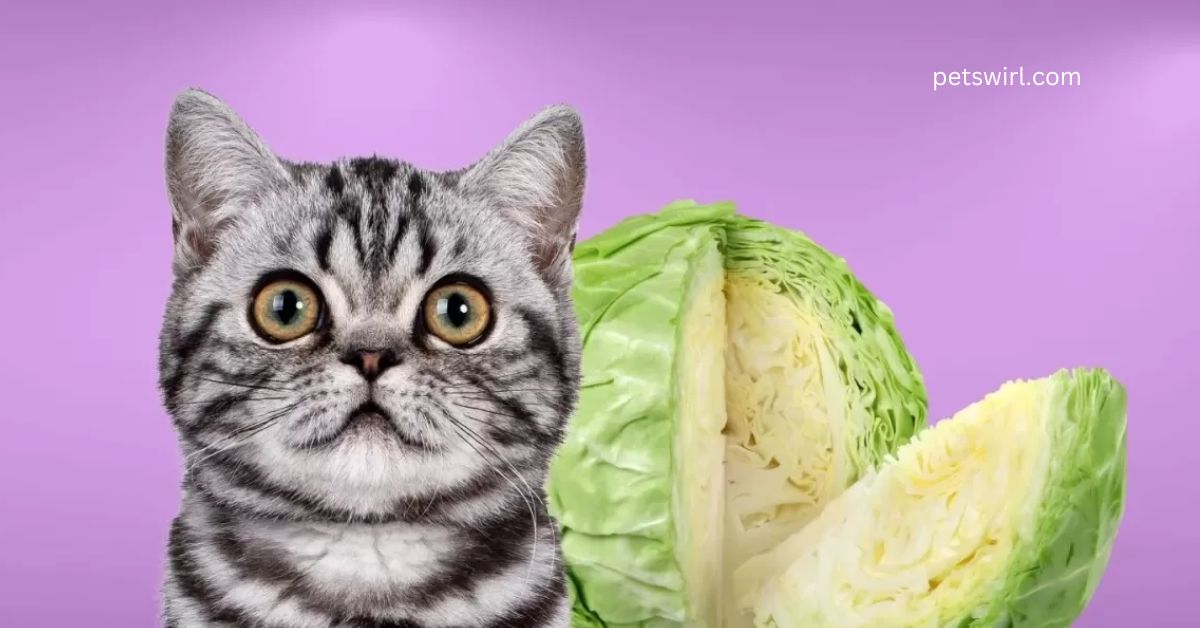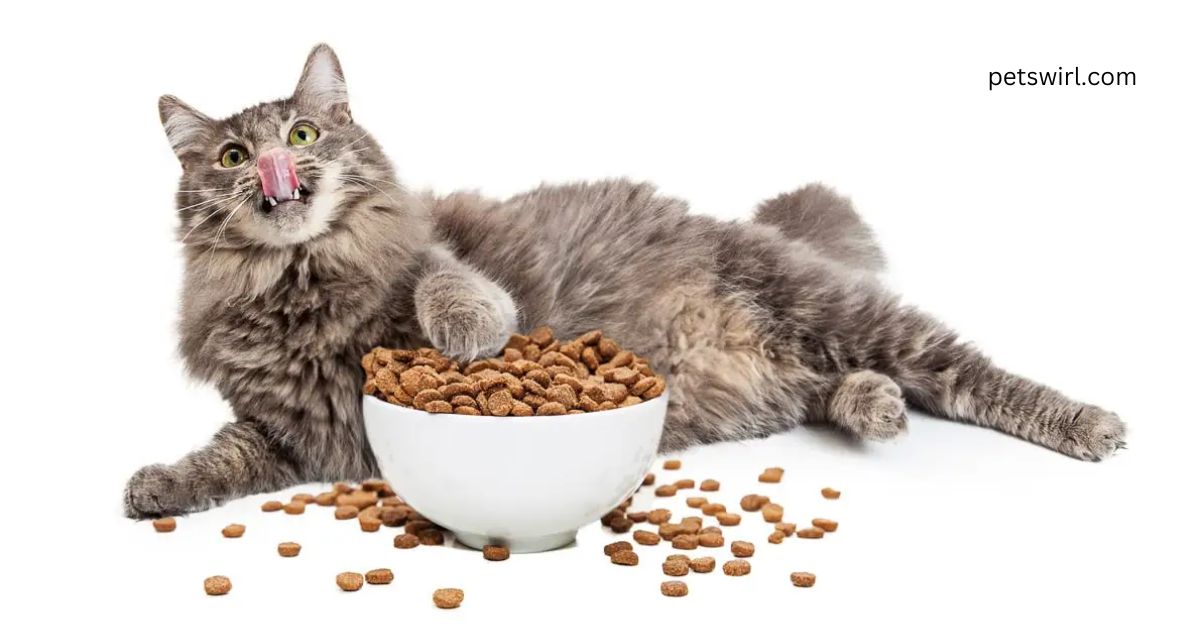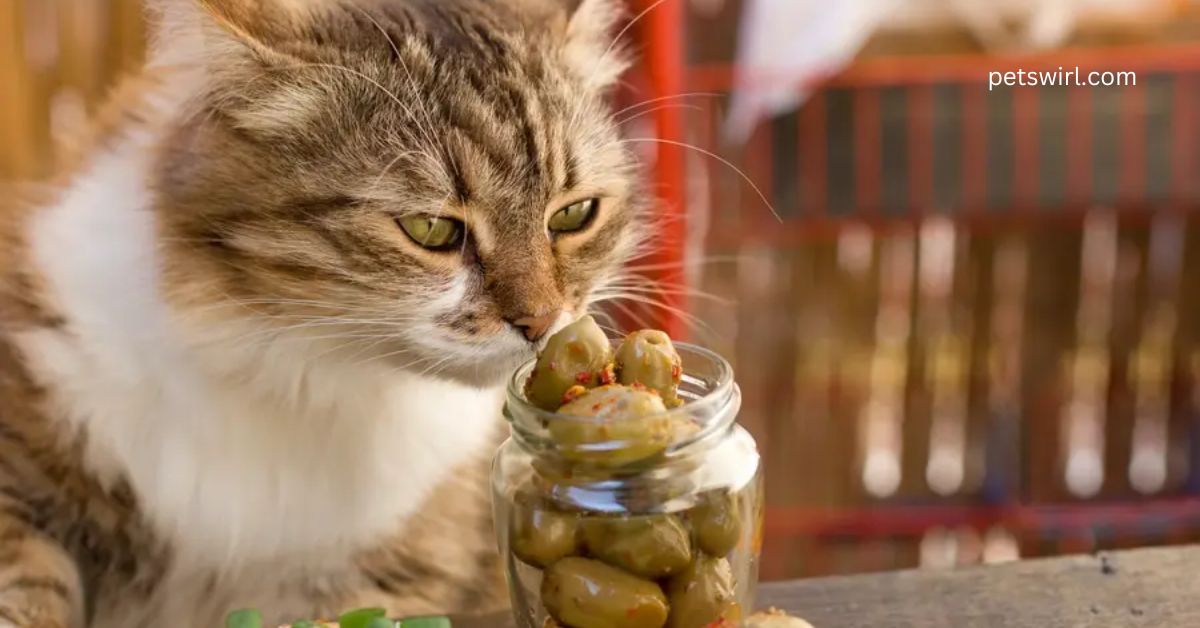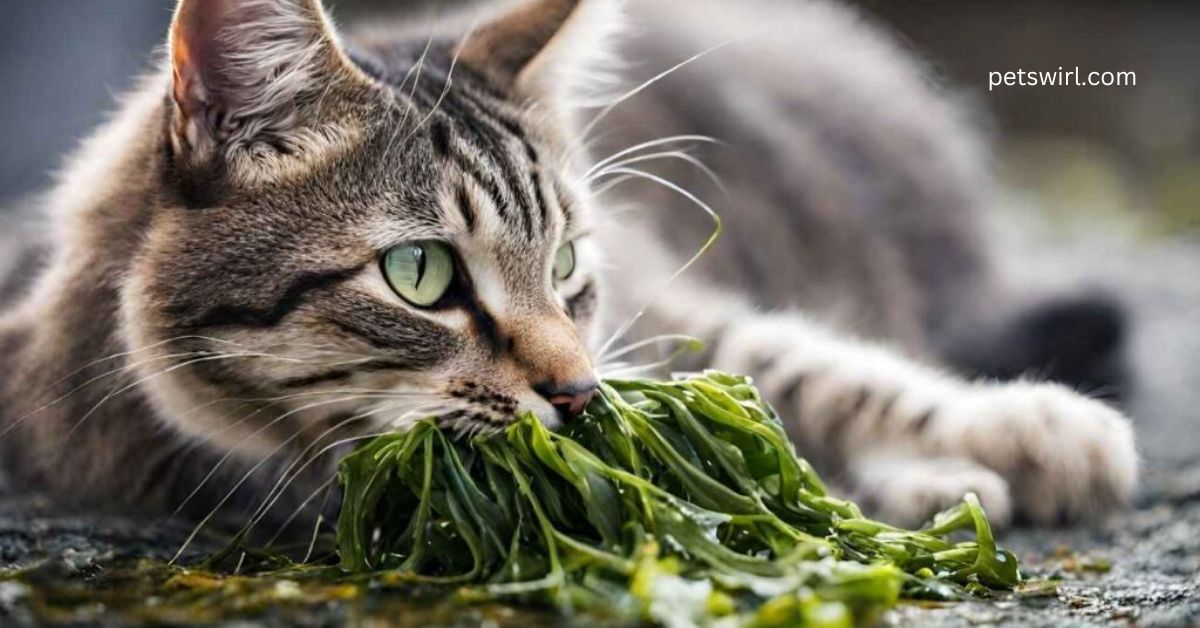Introduction
Cats are natural carnivores, often interested in sampling whatever their humans are eating. One food that often raises curiosity among cat owners is salami—a seasoned, processed meat with a strong smell that might attract a feline’s attention. But can cats eat salami safely, or does it pose health risks? This guide explores the impacts of salami on cats, including nutritional information, potential health risks, and safer alternatives.
Is Salami Safe for Cats?
Can Cats Eat Salami?, when it comes to safety, processed meats like salami fall into a gray area for cats. While cats are carnivores, their dietary needs are vastly different from humans, especially concerning processed and seasoned foods.
Salami often contains high levels of sodium, fat, and spices—ingredients that could be harmful to cats. In small quantities, salami may not cause immediate health issues, but it’s not a cat-safe food to give regularly.
Health Risks of Cats Eating Salami
Can Cats Eat Salami?, salami is generally high in sodium, fat, and artificial preservatives, which pose risks to a cat’s health. Here’s a closer look at some of these potential health concerns:
- High Sodium Levels: Cats have low sodium requirements, and salami can contain excessive sodium that may lead to dehydration, high blood pressure, and kidney strain in cats.
- Fat Content: Salami is rich in saturated fats, which can contribute to obesity and other health issues in cats, such as cardiovascular problems.
- Spices and Seasonings: Garlic and onions, often used in salami, are toxic to cats and can cause digestive distress or even more severe symptoms like anemia.
- Processed Ingredients: Additives like nitrates and nitrites used to preserve salami are foreign to a cat’s digestive system and can lead to upset stomachs or long-term health complications.
Nutritional Impact of Salami on Cats
Can Cats Eat Salami?, salami may be a source of protein, but its nutritional benefits for cats are minimal due to the high levels of unhealthy fats, sodium, and additives. Unlike lean meats such as chicken or turkey, salami doesn’t provide the type of protein cats need to thrive. Regular consumption of salami could lead to an imbalance in a cat’s diet, resulting in nutritional deficiencies or other health complications over time.

Salami vs. Cat-Safe Treats
Can Cats Eat Salami?, it’s easy to understand why some cats might find salami appealing—its strong smell and rich flavor are likely intriguing to them. However, there are healthier, safer alternatives to salami that provide protein and essential nutrients without the harmful ingredients.
Instead of offering salami, consider cat-friendly meats like:
- Boiled Chicken or Turkey (without seasoning)
- Cooked Fish (occasionally, as some types of fish contain heavy metals)
- Plain, unseasoned beef
These options provide the protein and amino acids cats need, minus the risks associated with processed meats.
Why Cats Should Avoid Salami
Can Cats Eat Salami?, processed meats like salami aren’t designed with a cat’s health in mind. For humans, moderation is often key with foods like salami, but for cats, even small amounts can present health risks. Let’s break down why salami should be avoided:
- Sodium Toxicity: Salami’s high salt content can lead to sodium ion poisoning in cats. Symptoms include increased thirst, lethargy, vomiting, and even seizures in severe cases.
- Unhealthy Fats: Cats require fat, but only in moderate amounts. Salami’s high-fat content is unhealthy for cats and can contribute to weight gain and related health issues.
- Dangerous Seasonings: Many processed meats contain ingredients like garlic and onion powder, both toxic to cats. These seasonings can cause damage to red blood cells, potentially leading to hemolytic anemia in severe cases.
Also read: Can Cats Taste Spicy?
Can Salami Cause Health Issues in Cats?
Yes, cats that consume salami may experience several health complications. Some potential issues include:
- Kidney Strain: Can Cats Eat Salami?, high salt content in salami can stress the kidneys, particularly in older cats or those with pre-existing conditions.
- Digestive Problems: Cats that eat salami might experience diarrhea, vomiting, or upset stomach due to its high fat and sodium content.
- Increased Thirst and Dehydration: Sodium can lead to dehydration, and cats may exhibit increased thirst after eating salty foods like salami.
Processed Meats and Cat Digestion
Can Cats Eat Salami?, cats have unique dietary needs that differ significantly from humans. Their digestive systems are not well-equipped to process the preservatives, additives, and seasonings commonly found in processed meats. Unlike lean, unseasoned meats, processed foods can irritate a cat’s stomach lining and cause long-term health issues. Foods like salami may contain nitrates and nitrites, which are harmful to cats and can lead to gastrointestinal problems.
Safe Meat Options for Cats
Can Cats Eat Salami?, Instead of giving cats salami, owners can offer healthier options that cater to their nutritional needs. Cat-safe meats include:
- Cooked Chicken Breast: Lean and unseasoned, chicken is a great source of protein.
- Turkey: Another lean option that provides amino acids without excessive fat.
- Boiled Fish: Fish like salmon or sardines (without added salt) are suitable but should be given sparingly.
These alternatives provide essential nutrients without the health risks of processed meats.
Why Salami Is Not a Cat-Safe Food
Salami is not designed for feline consumption, and it offers little nutritional value for them. While some cat owners might occasionally offer a tiny piece, it’s essential to keep in mind that salami’s ingredients and preparation make it unsuitable for cats. Unlike cats, humans benefit from the variety of flavors, textures, and nutrients in foods like salami, while cats do not process these foods in the same way.
Can Salami Harm My Cat’s Health?
Can Cats Eat Salami?, yes, eating salami can harm your cat’s health. Beyond digestive discomfort, the high salt and fat content in salami can lead to serious health issues over time if fed frequently or in large amounts. A high-sodium diet is detrimental to a cat’s kidneys and heart, while the fats in salami increase the risk of obesity, especially in indoor cats with limited activity.

Effects of Salami on Cat Digestion
Can Cats Eat Salami?, the effects of salami on cat digestion can vary depending on the amount consumed and the cat’s overall health. Some cats might handle a small bite with minimal issues, while others could experience immediate digestive upset. Signs of digestive discomfort after consuming salami include:
- Vomiting
- Diarrhea
- Loss of appetite
- Lethargy
If your cat shows any of these symptoms after eating salami, consult a veterinarian.
Sodium Levels in Salami for Cats
Can Cats Eat Salami?, a primary concern with salami is its high sodium content. While sodium is an essential mineral in a cat’s diet, excessive levels can be dangerous. Cats have a low tolerance for salt, and even small amounts of high-sodium foods can lead to dehydration, electrolyte imbalances, and kidney issues. Salami contains much more sodium than cats are accustomed to, making it a risky treat.
Salt Content in Salami and Cats
The salt content in salami is particularly concerning. A single slice of salami often contains more sodium than a cat should consume in an entire day. High-sodium foods can cause sodium ion poisoning, with symptoms like excessive thirst, weakness, and even tremors. For cats with kidney issues, even a tiny bit of salami could worsen their condition.
Healthy Alternatives to Salami for Cats
If you want to share a treat with your cat, there are healthier, low-sodium alternatives. Here are some suggestions:
- Cat-Safe Treats: Opt for treats specifically designed for feline nutrition, such as freeze-dried meat treats.
- Cooked Chicken or Turkey: Lean, unseasoned meats are excellent protein sources.
- Homemade Meat Snacks: Plain, boiled meat with no added salt or seasoning is an ideal alternative.
These options provide a protein-rich, safe treat for cats without risking their health.
Conclusion: Can Cats Eat Salami?
In conclusion, can Cats Eat Salami?, while cats can technically eat a small bite of salami without immediate harm, it’s not a recommended or safe food. The high levels of sodium, fat, and spices present significant health risks, particularly if fed regularly. Cats’ dietary needs are specific, and processed meats like salami do not align with their nutritional requirements.
Instead, consider safer alternatives that cater to a cat’s unique dietary needs and avoid processed foods that could lead to long-term health complications. Providing cat-safe, lean proteins such as chicken or turkey ensures your feline friend receives proper nutrition without unnecessary risks.
Also read: Can Cats Taste Spicy

